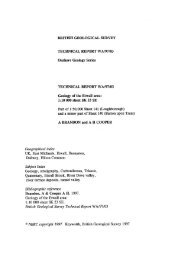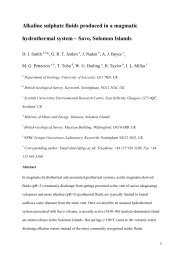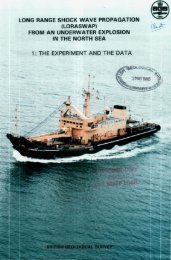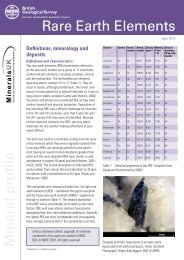Poikilotherms, by the very nature of their body thermo-regulation ...
Poikilotherms, by the very nature of their body thermo-regulation ...
Poikilotherms, by the very nature of their body thermo-regulation ...
Create successful ePaper yourself
Turn your PDF publications into a flip-book with our unique Google optimized e-Paper software.
WAP65<br />
Abstract<br />
Physiological adaptation to increased environmental temperatures has been studied<br />
experimentally in a number <strong>of</strong> fish species, with <strong>the</strong> up-<strong>regulation</strong> <strong>of</strong> several genes<br />
identified as being associated with <strong>the</strong> process, such as <strong>the</strong> warm-acclimated protein<br />
(wap-65). This article describes <strong>the</strong> cloning and characterisation <strong>of</strong> <strong>the</strong> wap65-2<br />
gene from <strong>the</strong> Antarctic plunderfish (Harpagifer antarcticus). The transcriptional<br />
expression <strong>of</strong> this gene in response to elevated seawater temperatures over a time<br />
course series is presented. Initially <strong>the</strong>re is strong down <strong>regulation</strong> <strong>of</strong> this gene to a<br />
maximum <strong>of</strong> 40 fold within 4 hours, followed <strong>by</strong> reco<strong>very</strong> to almost control levels<br />
within 48 hours, indicating that this gene does not play a role in <strong>the</strong> potential<br />
temperature adaptation <strong>of</strong> H. antarcticus.<br />
2

















